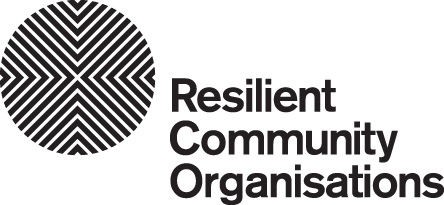Creating a Mandate for Action
Changing an organisational culture starts from the top.
Create a mandate for action by developing a disaster resilience statement.
This statement should be created by the board or executive management team in your organisation.
In your statement articulate why building your organisation's resilience is a priority. You may like to include your own definition of resilience and link it to your mission statement and strategic goals.
If you're not sure where to start, take a look at the template we have created in the ‘Downloads’ section below. The template includes some sample text to help you develop your own resilience statement. The statement will have greater resonance if it is specific to your organisation so try your hand at writing your own, unique one. For example:
Every year Australian communities are subjected to the damaging impacts of emergencies and disasters. The effects of these events on people experiencing disadvantage and the organisations who work with them serve as a reminder of our need to continuously strengthen our resilience.
Building the preparedness of our organisation for disasters and emergencies is a priority because we are committed to delivering vital _____ services to our community. Our clients are ______ and our services extend to _______ areas.
We recognise that if our organisation is put under strain or ceases operation because of an emergency then our clients will be impacted. They will lose important services just at the time when they themselves may be suffering acute difficulty because of the emergency.
Though emergencies and disasters may be infrequent, our services are especially important before, during and after an emergency because many of our clients are beyond the reach of other services; we provide an essential lifeline of support. Furthermore, we appreciate that climate change may make extreme weather events more severe and more frequent.
We therefore recognise that preparedness for extreme weather events is a priority for us and our clients.
Agree on the Objectives to be Achieved
What are your objectives in relation to disasters and emergencies?
- What services are essential that you will maintain?
- What services will you limit?
- What are you wanting to achieve in the community?
- Staff and volunteer training?
Refer to your organisation's mission, values and goals and strategic priorities and then consider questions such as:
- Which of your services would be essential or non-essential during and immediately after an emergency?
- Which of your services are dependent upon other organisations or businesses? (for example suppliers of critical items such as food if you provide meals to clients)
- Which services do you provide that no other organisation provides in your community? Of these which are essential?
- Which personnel are critical in the delivery of your essential services?
- How would your clients or beneficiaries be impacted by your inability to deliver services?
- What laws, rules, regulations or standards apply to your organisation in relation to requirements to provide services?
In the light of discussion of these and related questions what are your objectives in relation to disasters and emergencies. For example
The objectives of our Disasters and emergencies plan are:
- We can provide an adequate level of service to our clients before, during and after an emergency
- Our clients are supported to build their disaster resilience by preparing for disasters and emergencies
- Our staff and volunteers are well prepared to cope with a disaster or emergency
- Through strengthening our organisational disaster resilience we strengthen the disaster resilience of our whole community
- Our organisation is well positioned to work with our community to ‘build back better’ after an emergency in particular we will have strong relationships with….
Lead Engagment and Communication
Your people are your organisation’s greatest asset.
In times of disasters your people need to pull together more than ever. If your staff are engaged, work well as a team and feel valued they are much more likely to help your organisation work through the strain of a disaster or emergency.
If your staff and volunteers are not engaged or don’t feel appreciated they will be less much more likely to help your organisation work through the strain of a disaster or emergency.
However, even though this engagement, working well as a team and feeling valued is very important it is insufficient in dealing with disasters. Staff and volunteers must be engaged with prevention and planning for disasters and emergencies before they happen.
What are the processes you will use to engage staff and volunteers in prevention and planning for disasters and emergencies?
- Are there existing structures and committees than can be used?
- Are new structures or committees required?
- Are the local interagencies, networks or local emergence management forums staff need to be engaged with?
What are the processes you will use to communicate with staff and volunteers:
- In planning for disasters and emergencies?
- In disasters and emergencies?
Decision Making During Disasters and Emergencies
Decisions will need to be made quickly and confidently during an emergency to ensure your people and your organisation respond to risks and events appropriately. Two key issues are:
- Are decisions being made consistent with the organisation’s mission, values and goals?
- Are decisions timely?
In a disaster or emergency the best decisions will be made when everyone is working from the organisation’s mission, values and goals. How confident are you that these are fully understood by all staff and volunteers?
How confident are you that that the objectives to be achieved in disasters and emergencies are fully understood by all staff and volunteers?
In times of emergency your staff and volunteers may have to make decisions without senior managers available. To do this well:
- They need experience in decision making.
- They need to know before a disaster or emergency the lines of accountability and delegations that apply in disasters and emergencies.





